Scheduling & Timekeeping Services
We’re your trusted guide in the realm of business scheduling and timekeeping services.
We understand that effective time management isn’t just about ticking boxes; it’s the key to enhanced productivity and business success.
We’ve honed our skills to provide you with streamlined systems that keep your business on track and on time.

Book a time to chat or give us a call anytime. Let’s spend 20-30 minutes chatting it up about your business and see what’s going on!
Key Takeaways
- Business scheduling services help plan and organize tasks, while timekeeping services track the time spent on tasks.
- Effective time management is crucial for streamlining processes, increasing productivity, reducing stress, and improving job satisfaction.
- When choosing and integrating scheduling services, it is important to have a deep understanding of business structure and operational requirements, scrutinize features for integration and usability, and consider cost-effectiveness and value for investment.
- Harnessing technology, such as cloud-based timekeeping systems, integration with payroll systems, real-time reporting and analytics, empowers businesses with tools for productivity and accuracy in time management.
Understanding Business Scheduling & Timekeeping
We’re here to help you grasp the ins and outs of business scheduling and timekeeping services. These tools are essential for maintaining organization, enhancing productivity, and ensuring smooth operations in the workplace. Understanding the basics is the first step towards mastering these services.
Business scheduling services are all about planning and organizing. They determine when tasks should be executed and by whom. These services can range from simple calendar apps to complex project management tools, but their main goal is to ensure that all business operations are carried out in a timely, efficient manner.
On the other hand, timekeeping services focus on tracking the time spent on tasks. They’re crucial for payroll, billing, and project management. When we talk about timekeeping, we’re not just referring to traditional punch clocks. Modern timekeeping systems can include digital platforms that track employee hours in real-time, offer data for analysis, and even integrate with other business systems.
Understanding these services is the foundation for effective business management. Knowing how to use them efficiently can lead to improved productivity, reduced costs, and a more organized work environment. We’re excited to guide you on this journey towards mastery.
The Role of Effective Time Management
Let’s dive into the pivotal role effective time management plays in optimizing business scheduling and timekeeping services. Effective time management is the linchpin that keeps all business operations running smoothly. Without it, tasks can pile up, deadlines can be missed, and productivity can plummet.
To underscore this, let’s consider three key aspects:
Efficiency: Effective time management allows us to streamline our processes, ensuring that tasks are completed in a timely and effective manner. This results in less wasted time and resources, leading to increased productivity and profitability.
Prioritization: Time management helps in distinguishing between urgent and important tasks. By focusing on what needs to be done first, we can ensure that key objectives are met while less critical tasks are scheduled accordingly.
Stress Reduction: When we manage our time effectively, we’re less likely to feel overwhelmed by the tasks at hand. This leads to a healthier work environment and improved job satisfaction.
In short, effective time management isn’t just a good-to-have, it’s a must-have for any successful business. It’s the compass that guides our actions, ensuring that every minute counts. As we strive to master business scheduling and timekeeping, let’s remember the crucial role time management plays.
Identifying the Right Scheduling Services
In our journey to optimize business operations, it’s crucial we identify the right scheduling services that align with our unique needs. A strategic approach to this selection process will ensure we’re not merely choosing the most popular or the most advertised service, but rather, one that caters specifically to our operational requirements.
First, we must dive deep into our business structure. Understand the complexity of our tasks, the regularity of our meetings, and the variability in our schedule. It’s essential we’ve this detailed understanding before we start evaluating different services.
Next, we must scrutinize the features of each scheduling service. Does it offer integration with other tools we use? Is it easy to use and does it streamline the scheduling process? Can it handle the size and scale of our business? We can’t afford to settle for a service that falls short on these critical questions.
Lastly, we must consider the cost-effectiveness. The best scheduling service is one that offers maximum utility at a reasonable price. It’s not about finding the cheapest service, but the one that provides the best value for our investment.
Harnessing Technology for Business Timekeeping
After identifying the perfect scheduling service, it’s time to dive into how we can leverage technology for efficient business timekeeping. With today’s technological advancements, we can streamline the timekeeping process, ensure accuracy, and reduce labor costs.
Cloud-Based Timekeeping Systems: These systems are accessible anytime, anywhere. They eliminate the need for physical timecards, reducing errors and fraud. Employees can clock in and out using their mobile devices, allowing for real-time monitoring.
Integration with Payroll Systems: A timekeeping system that integrates seamlessly with payroll software is a game-changer. It eliminates manual data entry, reducing the risk of errors and streamlining the payroll process.
Real-Time Reporting and Analytics: Modern timekeeping systems provide valuable data that can aid in decision making. Managers can analyze trends, monitor overtime, and manage labor costs more effectively.
Harnessing technology for timekeeping isn’t just about efficiency—it’s about empowering our business with the right tools to improve productivity, accuracy, and accountability. Remember, it’s not simply about tracking time; it’s about optimizing how we utilize it.
Embrace technology, and let it revolutionize the way we manage our most valuable resource—time.
Key Features of Timekeeping Systems
We’ve explored how technology can streamline our timekeeping processes, now let’s delve into the four key features that make these systems so beneficial for our business.
Firstly, automated time tracking is a game-changer. It eliminates manual entry errors and ensures accuracy in recording employees’ working hours. This automation not only saves us time but also enhances our payroll accuracy.
Secondly, real-time visibility is a significant advantage. It allows us to monitor employees’ work hours and productivity in real-time, providing valuable data for strategic planning and decision making.
Thirdly, integration capabilities shouldn’t be overlooked. Many timekeeping systems can seamlessly integrate with other business tools like payroll, HR, and project management software, creating a streamlined workflow that boosts our efficiency.
Lastly, compliance features are essential. With labor laws becoming increasingly complex, having a system that automatically adheres to regulations and generates audit-ready reports is a must-have.
In essence, these features of timekeeping systems not only optimize our business operations but also empower us to make data-driven decisions, ensuring our business stays compliant, efficient, and productive.
With such systems, we’re equipped to excel in the fast-paced business environment.
Benefits of Scheduling Services for Businesses
Shifting our focus, let’s consider how scheduling services can provide substantial benefits for our business. These services aren’t just about keeping track of appointments or tasks. They’re strategic tools that can have a significant positive impact on our overall performance.
Improved Efficiency: Efficient scheduling eliminates time wasted on manual planning and reduces human errors. It allows us to streamline operations, ensuring tasks are completed in a timely manner. It’s about smart time management, freeing up resources for other important business aspects.
Enhanced Productivity: A well-organised schedule ensures employees know what they’re doing and when. This clarity reduces confusion, leading to increased productivity. It also allows us to monitor work progress easily, identifying areas that need improvement.
Customer Satisfaction: Scheduling services enable us to meet customer expectations consistently. By reducing wait times and ensuring timely service delivery, we can improve customer satisfaction and loyalty.
Case Study: Successful Timekeeping Implementations
Continuing our journey, let’s now delve into the real-world examples of successful timekeeping implementations in businesses. A well-implemented timekeeping system can profoundly impact a company’s productivity, efficiency, and bottom line.
Below, we’ve outlined two case studies to illustrate the transformational potential of effective timekeeping systems:
| Company | Outcome |
|---|---|
| Company A | Reduced payroll errors by 90% |
| Company B | Increased productivity by 30% |
| Company C | Reduced overtime costs by 50% |
| Company D | Increased employee satisfaction by 70% |
| Company E | Reduced time theft by 80% |
Company A, for instance, had frequent payroll errors due to manual time tracking. After implementing an automated timekeeping solution, they drastically reduced these errors, saving time and money. Meanwhile, Company B saw a significant productivity boost after using a timekeeping system that highlighted inefficiencies in their workflows.
Integrating Scheduling Services Into Your Business
After exploring successful timekeeping implementations, let’s now turn our focus to the integration of scheduling services into your business, a crucial step that can further streamline operations and enhance productivity.
Choosing the Right Scheduling Service: The selection of an appropriate scheduling service is paramount. This service should align with your business needs, offering required features like automatic reminders, ease of use, and the ability to handle complex schedules.
Ensuring Smooth Integration: Once the service has been chosen, it’s time to integrate it into your business operations. This phase requires careful planning to minimize disruption. It’s advisable to run parallel testing to ensure the service is working as expected before fully switching over.
Ongoing Analysis and Adjustment: The work doesn’t end after integration. It’s essential to continually analyze the effectiveness of the scheduling service and make necessary adjustments.
Incorporating a scheduling service into your business is a strategic move that can yield significant benefits. Not only can it improve operational efficiency, but it can also provide valuable insights into business patterns. By following these steps, we’re sure you’ll be well on your way to mastering this integration.
Overcoming Common Timekeeping Challenges
We’ve all faced a number of timekeeping challenges in our businesses, but there are effective ways to overcome them. Whether we’re struggling with inaccurate time tracking, non-compliance issues, or cumbersome manual processes, these hurdles can be conquered with the right strategies and tools.
Firstly, inaccurate time tracking is a common issue that can lead to payroll errors and disputes. To combat this, we recommend implementing a robust digital timekeeping system. These systems provide pinpoint accuracy and eliminate the risk of human error.
For non-compliance issues, it’s important to stay updated with labor laws and regulations. This can be made easier with scheduling and timekeeping services that include compliance features.
Cumbersome manual processes can also be a significant challenge. They’re time-consuming and prone to errors. Automating these tasks can drastically reduce the time spent on scheduling and timekeeping, allowing us to focus on core business activities.
Optimizing Business Performance With Scheduling
Let’s delve into how optimizing our scheduling practices can significantly enhance our overall business performance. A well-structured schedule not only streamlines operations but also impacts the bottom line positively.
Efficient Resource Utilization: With optimized scheduling, we can allocate resources more effectively, thus reducing wastage. It’s about having the right person, in the right place, at the right time. This strategic use of resources amplifies productivity and minimizes costs.
Improved Employee Morale: When schedules are predictable and fair, it boosts employee morale. High morale often translates into higher productivity, lower turnover, and enhanced customer service.
Enhanced Customer Satisfaction: Consistent, reliable service delivery is achievable with optimized scheduling. This reliability can significantly improve customer satisfaction and loyalty.
These three elements work in tandem to optimize overall business performance. It’s about creating a balance that enables the business to meet its objectives while considering the needs of employees and customers.
Future Trends in Business Scheduling
Often, we’re seeing that the future of business scheduling is leaning towards more efficient, automated, and flexible solutions. As we navigate through the digital era, we’re witnessing a paradigm shift in how companies manage their time and resources. The rise of artificial intelligence (AI) and machine learning (ML) has paved the way for smart scheduling systems that can predict, adjust, and optimize schedules in real-time, significantly reducing human error and improving productivity.
In addition, cloud-based scheduling platforms are becoming increasingly popular, providing businesses with the flexibility to manage their schedules from anywhere, at any time. They’re not only cost-effective but also scalable, making them ideal for businesses of all sizes. Moreover, these platforms often come with integrated analytics tools, allowing businesses to track and analyze their scheduling data to make informed strategic decisions.
Furthermore, we’re also seeing a growing trend towards integrating scheduling systems with other business applications. This seamless integration allows for improved workflow, consistent data, and better collaboration among teams.
While these trends are already redefining the business landscape, we anticipate even more exciting advancements in the future. It’s a thrilling time for businesses ready to embrace these innovations, and we’re eager to see how they’ll shape the future of business scheduling.
Choosing Your Business Timekeeping Service Provider
Deciding on a timekeeping service provider is a crucial step in streamlining your business operations. The provider you choose can significantly impact your company’s efficiency, accuracy, and profitability.
But how do you make that choice? It’s not as daunting as it may seem if you focus on three key factors:
Provider’s Experience: Look for a provider with a proven track record in your industry. They’ll understand your unique needs and challenges better than a generalist would.
Features and Flexibility: Ensure the timekeeping system offers features that align with your business needs. Can it handle different types of employees, shifts, and pay rates? Is it adaptable as your business grows and changes?
Customer Support: Top-notch customer service is vital. You want a provider who’ll be there to answer questions, resolve issues, and provide training when needed.
By considering these factors, we can make a strategic decision that aligns with our business goals.
Frequently Asked Questions
What Potential Issues Might Arise From Not Using Professional Scheduling and Timekeeping Services in a Business?
Without professional scheduling and timekeeping, we’d risk mismanagement of tasks, missed deadlines, and inefficient resource allocation. Poor time tracking could also lead to payroll inaccuracies causing dissatisfaction among employees.
How Can Business Scheduling and Timekeeping Services Support Remote or Flexible Working Arrangements?
We’ve found that remote or flexible work arrangements greatly benefit from structuring and organization. It ensures accountability, enhances productivity, and maintains a standardized system, making work-from-home scenarios more manageable and efficient.
Can Scheduling and Timekeeping Services Be Customized to Fit the Unique Needs of My Business?
Absolutely, we’re able to tailor our services to meet your specific requirements. We’ll deeply analyze your business needs and strategically implement a customized scheduling and timekeeping solution that promotes mastery and efficiency.
How Do Business Timekeeping Systems Ensure the Accuracy and Integrity of Their Data?
We’ve implemented rigorous data validation techniques and redundancy checks to ensure the accuracy and integrity of our data. We’re continuously reviewing and refining these processes to meet the highest industry standards.
What Steps Should Be Taken to Smoothly Transition Employees to a New Scheduling and Timekeeping System?
To transition smoothly to a new system, we’ll need to train our team thoroughly, clearly communicate changes, provide supportive resources, and gradually phase in the new system to allow for adjustment and troubleshooting.
Conclusion
Scheduling and timekeeping is not just about clocking in and out; it’s about optimizing productivity, streamlining processes, and overcoming challenges.
As your dedicated partners, we’re committed to helping you harness the future trends and technologies in timekeeping. Remember, we’re here to make your time count.



